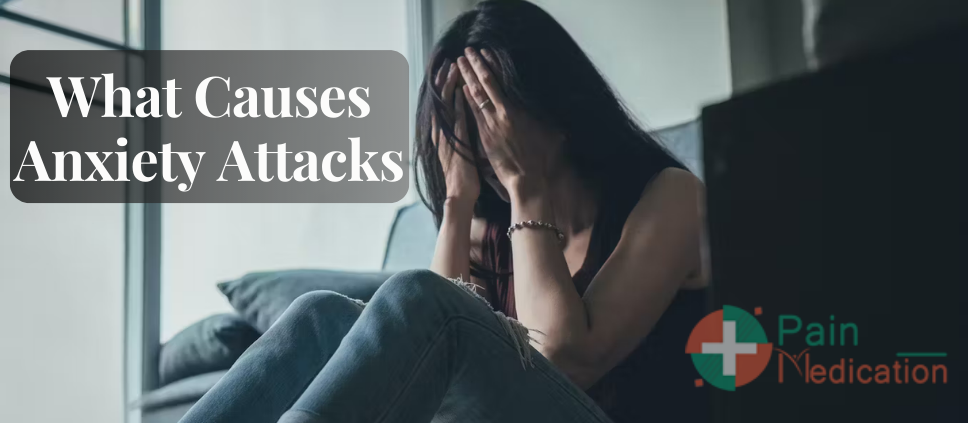Category
- Buy Adderall Online
- Buy Adipex Online
- Buy Alprazolam Online
- Buy Ambien Online
- Buy Ativan Online
- Buy Carisoprodol Online
- Buy Clonazepam Online
- Buy Codeine Online
- Buy Darvocet Online
- Buy Demerol Online
- Buy Diazepam Online
- Buy Dilaudid Online
- Buy Fioricet Online
- Buy Gabapentin Online
- Buy Hydrocodone Online
- Buy Hydromorphone Online
- Buy Klonopin Online
- Buy Lexapro Online
- Buy Lorazepam Online
- Buy Lorcet Online
- Buy Lortab Online
- Buy Meridia Online
- Buy Methadone Online
- Buy Modafinil Online
- Buy Norco Online
- Buy Opana ER Online
- Buy Oxycodone Online
- Buy Oxycontin Online
- Buy Percocet Online
- Buy Phentermine Online
- Buy Roxicodone Online
- Buy Soma Online
- Buy Suboxone Online
- Buy Subutex Online
- Buy Tapentadol Online
- Buy Tramadol Online
- Buy Valium Online
- Buy Viagra Online
- Buy Vicodin Online
- Buy Xanax Online
- Buy Zolpidem Online

Deals & Discounts
Use Coupon Code
SAVE10

Anxiety is a normal and natural response to stress. It can be a helpful emotion that prepares us to face challenging situations. Anxiety disorders can develop when anxiety becomes overwhelming and interferes with daily activities.
Panic attacks, another name for anxiety attacks, are a typical sign of anxiety disorders. They can be terrifying and can interfere with a person’s ability to function.
Understanding the underlying causes of anxiety attacks can help manage symptoms. It may also assist you to seek appropriate treatment. This blog will explore the various factors contributing to anxiety attacks. We will explore how to recognize the signs and symptoms and medicines to treat anxiety attacks.
What are Anxiety Attacks
Anxiety attacks, also known as panic attacks. They are accompanied by physical symptoms and last for long periods of time. These assaults may occur suddenly and without warning.
Additionally, it may attack while making the victim feel helpless and out of control. Anxiety attacks can be a symptom of an anxiety disorder or occur due to a stressful event or situation.
It’s important to remember that anxiety attacks don’t hurt you physically and aren’t dangerous. However, they can be very uncomfortable and interfere with a person’s quality of life. If you are experiencing anxiety attacks, seeking help from a mental health professional is essential.
Symptoms of Anxiety Attacks
During an anxiety attack, a person may experience physical and psychological symptoms.
These symptoms can include:
- Rapid heartbeat or heart palpitations
- Sweating
- Trembling or shaking
- Shortness of breath or feeling like you are choking
- Chest pain or discomfort
- Nausea or abdominal discomfort
- Dizziness or lightheadedness
- A feeling of impending doom or danger
- Fear of losing control or going crazy
The symptoms of an anxiety attack can be very distressing and interfere with a person’s ability to function. Some people may avoid certain situations or activities for fear of triggering an attack.
Causes of Anxiety Attacks
Anxiety attacks can be caused by a variety of factors, including:
- Genetics: Some people may be more susceptible to anxiety attacks due to genetic factors.
- Environmental factors: Living in a stressful environment can cause anxiety. Traumatic events such as violence or accidents can also trigger anxiety attacks.
- Medical conditions: Conditions like heart disease, hyperthyroidism, and respiratory disorders, can lead to anxiety attacks.
- Substance abuse: The use of drugs or alcohol can trigger anxiety attacks in some individuals.
- Medications: Certain drugs, such as antidepressants, can also cause anxiety attacks.
- Psychology: Anxiety attacks can be caused by stress, depression, and chronic anxiety disorders.
- Hormonal imbalances: Hormonal fluctuations during menstruation or menopause can trigger anxiety attacks.
- Lack of sleep: Lack of sleep can increase stress levels. It makes individuals more susceptible to anxiety attacks.
- Chronic illness: Dealing with chronic disease or chronic pain can also trigger anxiety attacks.
- Personal life circumstances: Financial difficulties, relationships, or job-related stress can also cause anxiety attacks.
It is necessary to note that a combination of factors can cause anxiety attacks and may differ from person to person. Seeking professional help can be beneficial in identifying the underlying cause.
Treatment Options for Anxiety Attacks
Numerous treatments for anxiety attacks can help control and reduce symptoms. Some of them are:-
Cognitive-behavioral therapy (CBT):
This therapy aims to change the negative thought and behaviors contributing to anxiety attacks. CBT typically involves practicing relaxation techniques. It also involves learning coping mechanisms and challenging irrational thoughts while working with a therapist.
Mindfulness and relaxation techniques:
Mindfulness meditation and relaxation practices may lessen anxiety. It may include deep breathing and progressive muscle relaxation, which can reduce anxiety. It can also include visualization, which can help reduce anxiety and promote a sense of calmness.
Exercise and healthy lifestyle choices:
Regular exercise, healthy eating patterns, and getting adequate sleep can all induce well-being. It can help reduce the frequency and severity of anxiety attacks.
Support groups:
Joining a support group can provide a sense of community and validation for those experiencing anxiety attacks. Sharing experiences with others can help reduce feelings of isolation and anxiety.
It’s important to remember that everyone’s experience with anxiety attacks is unique, and what works for one person may not work for another. Finding the proper cure approach may take some trial and error. However, with the help of a mental health professional, you can cure it.
Medicines for Anxiety
Medications can be an effective treatment option for anxiety, and several drugs are available to manage anxiety symptoms. Here are some commonly prescribed drugs for pressure:
Xanax:
The drug Xanax, also referred to as alprazolam, is a fellow of the benzodiazepine drug subclass. Gamma-aminobutyric acid (GABA), a neurotransmitter that lowers anxiety and encourages relaxation, is enhanced by it. Buy Xanax online which is commonly used to treat anxiety, panic, and generalized anxiety disorders.
Vyvanse:
Vyvanse is a prescription drug for attention deficit hyperactivity disorder (ADHD). It has also effectively treated anxiety. Order Vyvanse online overnight it works by increasing levels of dopamine and norepinephrine in the brain. They can help in regulating mood and reduce anxiety symptoms.
Precautions to prevent yourself from Anxiety Attacks
Here are some precautions to avoid attacks of anxiety:
Practice relaxation techniques:
In-depth breathing, progressive muscle relaxation, and visualization are all relaxation techniques. They can help you calm down during times of high stress.
Exercise regularly:
Exercise is an excellent way to lessen stress and improve your overall health. Regular exercise can help regulate your mood, reduce anxiety, and enhance sleep quality.
Get enough sleep:
In order to maintain fair physical and mental health, one must get enough sleep. Establish a regular sleep schedule and aim for 7-9 hours of sleep each night.
Avoid caffeine and other stimulants:
Caffeine and other stimulants can trigger anxiety attacks in some people. If you notice that caffeine makes you feel anxious, consider reducing your intake or avoiding it altogether.
Limit alcohol and drug use:
Alcohol and drugs can exacerbate anxiety symptoms and increase your risk of an anxiety attack. Avoid excessive use of these substances.
Conclusion:
In conclusion, anxiety or panic attacks are a common and treatable mental health condition. A variety of factors can cause this condition. These factors may include genetic predisposition, environmental stressors, and underlying medical conditions.
Even though the signs of an anxiety attack can be crippling and overwhelming, there are several treatments that can help. Treatments may include cognitive-behavioral therapy and drug. It may also include mindfulness and relaxation exercises and support groups.
If you are experiencing anxiety attacks seeking professional help is essential. Remember, with the proper support and treatment, anxiety attacks can be managed effectively. It allows you to live a happier and healthier life.

Leave a Reply